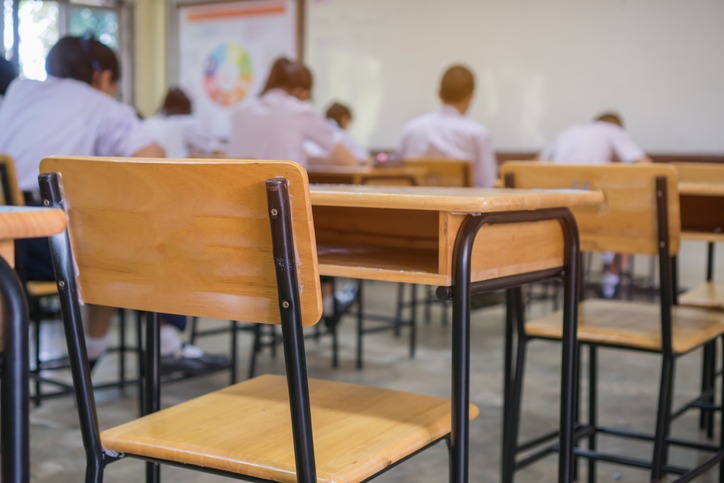
As reported by The Guardian, despite Covid’s mild symptoms in children, failures in prioritising education and well-being have led to increased absenteeism, an attainment gap, and long-term consequences, raising the urgent need for investment and support in various areas of the education system.
Due to the mild symptoms in children, it can be argued that after the decision to close schools in March 2020, they should have been the first thing to reopen as infection rates started to fall in May that year.
However, they remained mostly closed as pubs and restaurants were allowed to reopen.
The failures continued long after: Sir Kevan Collins, the government’s education recovery tsar, resigned in 2021 after the government scaled back his proposals for a multiyear £15bn catch-up programme to a tenth of what he recommended – an average of just an extra £22 a year for every primary schoolchild in England.
Now we are seeing the consequences. One place they are showing up is in school absences. Centre for Social Justice analysis of new government figures published last week shows there are at least 140,000 children – almost one in 50 – who miss more than half the time they should be in school, more than double the numbers from before the pandemic. And more than one in five pupils are missing the equivalent of a morning of school a week, up 60% since the pandemic.
What’s going on? There’s been superficial speculation from ministers and in the press that the culprit may be changing working patterns. But, perhaps unsurprisingly to anyone who grappled with home schooling while working, focus group research suggests that while cultural attitudes to attendance have changed, it’s got nothing to do with home working. Instead, there has been a shift among parents right across the social spectrum from seeing everyday school attendance as a fundamental aspect of good parenting to viewing it more as one of several competing demands. When a child has missed so much time in school as a result of the pandemic, what difference will an extra day or two here or there make?
Taking term-time holidays to save money is therefore seen as wholly socially acceptable. Shifting attitudes towards attendance have also been underpinned by increasingly negative parental attitudes towards schools, including their perceived inability to cater to their child’s educational needs.
There is also a marked social gradient in absence patterns: children from disadvantaged backgrounds are three times more likely to be missing more than half of their time in school than other children. Rising child poverty rates and the scale of the cost of living crisis mean that some children will not be attending school because their parents cannot afford the school uniform or to get them there.
A lack of resources means provision for children with special educational needs and disabilities (Send) is suffering; parents who feel school doesn’t cater for their child may feel forced to take their child out altogether and attempt to home school them. And as growing numbers of young people are suffering from mental health issues in the wake of Covid,including rising levels of anxiety, children’s mental health services are struggling, with record waiting lists in England and young people unable to access care until things get very bad indeed, if at all.
All of this will be playing into increased levels of absenteeism from school and the growing attainment gap between children from more and less affluent backgrounds, which was already widening before the pandemic. The proportion of young people leaving compulsory education without five GCSE passes has grown to almost one in five; without action, we should expect it to go up further.
None of this is inevitable, but it will take money and patience to address, including far more resources for catch-up tuition, Send provision, school-home liaison, mental health services and early years support. The longer we leave it, the harder it will be, and the more lives that will be unnecessarily blighted.
In her evidence to the inquiry, Longfield observed that during Covid there appeared to be no one around the cabinet table taking responsibility for speaking up for children’s best interests. She’s right, but that’s not an exclusive feature of Covid: this is a government that has neglected children’s education and health well before and long after it struck. The pandemic will cast a long shadow over the Covid generation all right, but as a result not of the virus, but terrible political choices.




Be the first to comment